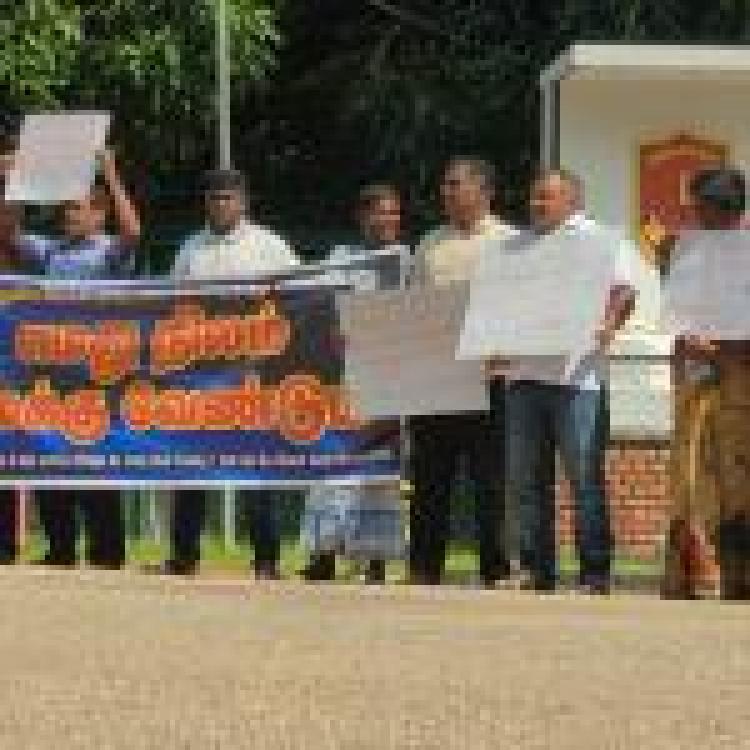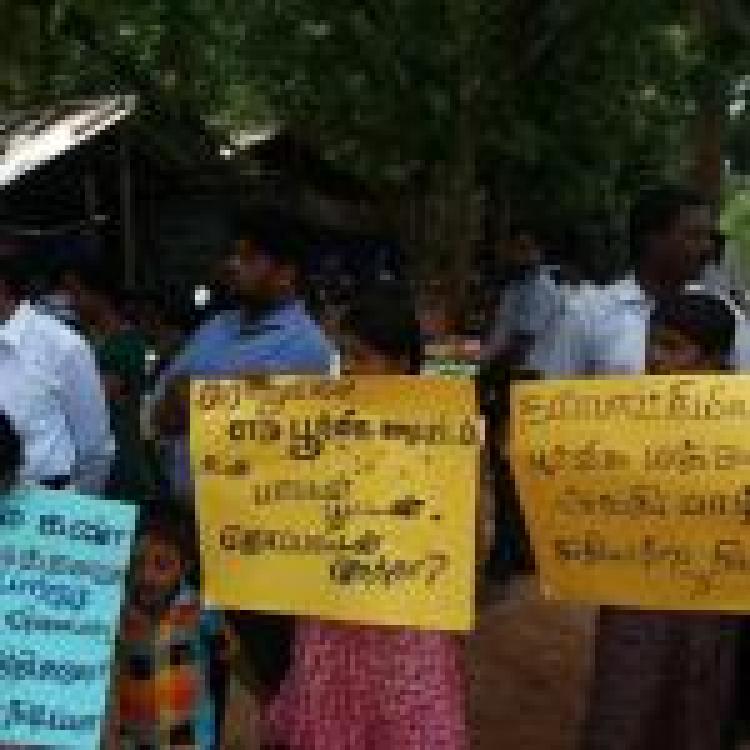.jpg)
The residents of Keppapulavu marched to the District Secretariat in Mullaitivu where they handed over letters addressed to president Ranil Wickremesinghe and other officials requesting the return of their lands which are occupied by the Sri Lankan military.
The residents who met the District Secretary informed him that although some land had been released in the past, many homes, schools, primary health care centres, temples, churches, and even municipal halls remain under military control, impeding their ability to go about their day-to-day lives.
.jpg) They also informed him that many of these individuals own coconut estates from which they eke out a living by selling them over time, however, those lands remain under the control of the Sri Lankan army as well. According to them are 171 acres belonging to 62 individuals and they have sought assistance from the government for the release.
They also informed him that many of these individuals own coconut estates from which they eke out a living by selling them over time, however, those lands remain under the control of the Sri Lankan army as well. According to them are 171 acres belonging to 62 individuals and they have sought assistance from the government for the release.
The residents explained the difficulties they have endured since the end of the armed conflict in looking after their families and having to remain displaced from their own homes.
Last year, a group of residents from Keppapulavu, protested in front of the District Secretariat Office demanding to be included in a government welfare program. The program provides financial assistance to people living in poverty, but the protestors argue that they have been excluded because their lands are still being occupied by the military.
The protestors told the District Secretary at the time Kanageshwaran that they have been unable to cultivate their lands since the military occupation, which has left them in poverty. They asked that the government provide them with financial assistance for them to support their immediate needs.
Although almost ten years have passed since the end of the armed conflict the Sri Lankan military continues to control and occupy vast swathes of land in the Tamil homeland, forcing families to remain displaced. According to the Jaffna based organisation, Adayaalam Center for Policy Research (ACPR), 30,000 acres remain under occupation in Mullaitivu.
Speaking to Reuters, Adayaalam's executive director, Kumaravadivel Guruparan said, "These people have waited for so long to get their land and homes back, and resume their lives."
Keppapulavu families began their prolonged campaign for their homes in March 2017.
The campaign, which has seen widespread support among Tamils across the North-East and diaspora worldwide, has reached out to several international bodies, including the UN High Commissioner for Human Rights.
In a letter to the High Commissioner last October, families wrote:
"The lands of 104 families are still in the hands of Sri Lankan Security Forces."
"Our places of worship, homes, schools, playgrounds, cemeteries and other buildings are in the hands of the Sri Lankan forces. We, including children and the elderly, continue our protest in extremely difficult environments under heavy rain in places in jungles. While we're struggling, our lands were being used by the Sri Lankan Forces and enjoy all the benefits."
“The rich community life in this village, woven around agriculture and fishing, and cultural and religious practices, was destroyed by the war and after the war, by the occupation of the Army” said a press release by the People’s Alliance for Right to Land. The organisation went on to call on Sri Lanka’s president, “who is also the Minister of Defense and Commander-in-Chief of the Armed Forces, to immediately release all military occupied lands in the North and East”.


